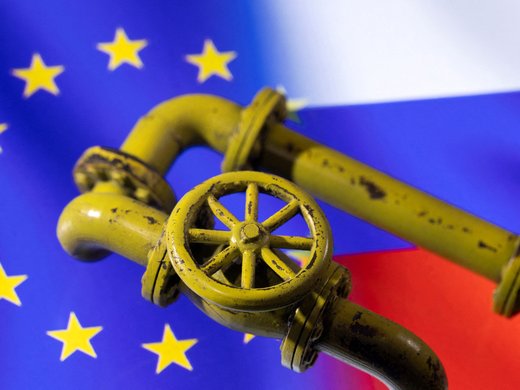In the first two posts in this series I addressed the tone of Japan-Korea relations and offered a roadmap for solving the Dokdo/Takeshima issue. Here I would like to tackle the thorniest and most complicated challenge in the relationship: namely, the “history problem.” From the Korean perspective, the basic issue is Japan’s unwillingness to acknowledge and atone for its past imperial sins. From the Japanese perspective, the basic issue is Korea’s unwillingness to acknowledge that it has already done so. There are important subtexts at work as well. For Korea, the key subtext is Japan’s haughtiness and sense of superiority; for Japan, it is Korea’s unseemly desire to keep tearing Japan down.
As always, the psychodynamics at work here are perfectly normal. Two people can look at the same facts and interpret them very differently. This is because we interpret things in the light of whatever is in the forefront of our minds. We also tend to think that people see the world the same way we do, and that when they do not act in a way consistent with what we believe to be true or just, their failure to do so is evidence of dispositional rather than situational characteristics. Put another way: when people disagree over history, they each naturally interpret the disagreement as evidence of antipathy—rather than merely different versions of events—which only further fuels hostility and suspicion.
Now, much ink has already been spilled on the history problem, to no avail. If I am to have any hope of making a constructive contribution here, I can only do so by approaching it from a novel perspective.
First, let us begin by noting, as everyone does, that the history issue has at least three aspects. The first is the question of apology. Has Japan acknowledged and apologized for its mistreatment of Korea and Koreans during the colonial period and World War II? If so, does Japan act in a way consistent with proper acknowledgement and apology? Korea says no, but Japan says yes.
The second is the comfort women issue. During World War II, many Korean women served in “comfort stations,” providing sexual relief for Imperial Japanese Army soldiers. There are several issues in dispute here, including the numbers of women involved, whether they were coerced into the role, whether the Japanese government has acknowledged its responsibility for their suffering, and whether surviving comfort women have been adequately compensated (or at least compensated in accordance with bilateral agreements).
The third is the textbook issue. Koreans complain, among other things, that recent revisions to Japanese history texts minimize or ignore the evils inflicted upon Koreans during the colonial period and World War II. The Japanese believe that earlier texts erred on the side of autoflagellation.
It is easy to get lost in the weeds on any one of these aspects of the issue and to go around and around on how much of what is too little, too much, or just right. What we have here is a situation where people trot out their own standard and (not surprisingly) find that the other fellow falls short.
In fact, while I—like virtually everyone else who writes or speaks on this issue—have been speaking of “the” Korean perspective and “the” Japanese perspective, these expressions are misleading. In no advanced, well-educated society do you find unanimity. While there is a fairly high degree of consensus in Korea, there is far less agreement in Japan. The empathy gap here varies in scope and intensity. Some Koreans and some Japanese see virtually eye to eye. So the first point to bear in mind, when attempting to put the history problem in a new perspective, is that it is as much a Japanese domestic disagreement as a bilateral international one.
Second, what people say and what they think are often significantly different. I have been struck by how many of my Japanese friends and colleagues are perfectly willing to tell me things in private that would be music to Korean ears, but who take a much less conciliatory line in public. This is because a private conversation with me poses no threat to their national pride. A degree of national pride is socially and psychologically important, and people are entitled to it. If everyone paid more attention to what others think and less attention to what they do or say—or, perhaps more to the point, what they do not do or do not say—these issues would generate less heat.
Third, if Koreans and Japanese made greater efforts to put themselves in each other’s shoes and see the issue from the other perspective, they would understand that what drives the history problem is not, in fact, hatred, but pain. When you think someone hates you, the natural response is to get your back up. When you think someone is in pain, the natural response is to try to help. This primes people for cooperation rather than conflict.
Fourth, what often gets missed in the heat of the moment is that the whole point on both sides is, in fact, to move beyond the past. Everyone would like to exorcise the ghosts of history. They merely have different ways of doing it reflecting different national styles. Koreans want to confront the ghosts; Japanese want to let them be.
If I am correct in saying that, for Koreans, the root problem in the relationship is what they believe to be a lingering imperial mentality in Japan, focusing on these four points should help disabuse them of this fear. There is no nostalgia for imperialism in Japan, let alone appetite for it. The Japanese may not want to prostrate themselves more than they feel they have already done, and they may feel that Japan has been unfairly singled out for particularly severe criticism, but this does not mean that they think Japan is blameless. Every country has dark chapters in its history.
If I am correct in saying that, for the Japanese, the root problem is Korea’s desire to tear Japan down and its unwillingness to see that Japan has transcended its past, then focusing on these four points should help correct their misperception as well. Koreans do not enjoy bashing Japan; they simply cannot see that Japan has already transcended its imperial past because they are tuned to the wrong channel.
What about the weeds, I hear you say?—apologies, comfort women, textbooks, Yasukuni Shrine, various statements and actions of politicians, etc. etc. These are the specific issues upon which the history problem rears its ugly head. How do my four points help us solve these problems? They do not solve them directly, of course, but perhaps, in conjunction with the recommendations I offered in my first two posts, they might set the stage and the mood for constructive resolutions. In future posts I hope to have the opportunity to explore how in finer-grained detail.


